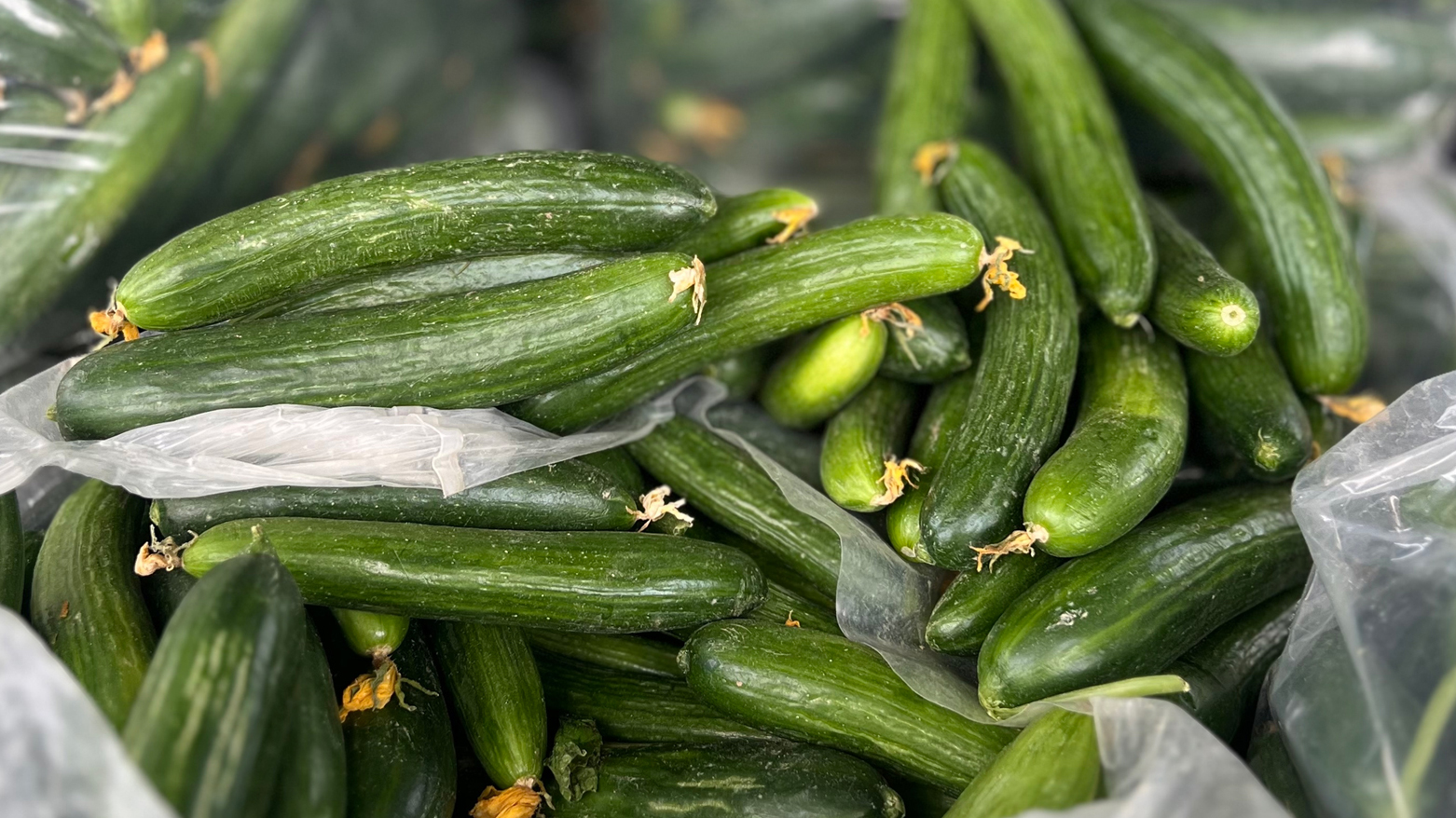Cucumbers and Commerce: Erbil's Agricultural Push Eyes Regional Markets
The announcement reflects the Kurdistan Regional Government’s (KRG) broader strategy to strengthen local agriculture and expand access to domestic and international markets.

By Kamaran Aziz
ERBIL (Kurdistan24) – In a major boost to the Kurdistan Region’s agricultural economy, the General Directorate of Agriculture in Erbil has announced that cucumber production is expected to exceed 35,000 tons this year, marking a significant increase from last year’s output.
The announcement reflects the Kurdistan Regional Government’s (KRG) broader strategy to strengthen local agriculture and expand access to domestic and international markets.
Hemin Sayed Murad, General Director of Agriculture in Erbil, told Kurdistan24 on Friday that the area designated for cucumber cultivation in 2025 has grown to 7,136 dunams. “We anticipate that production will exceed 35,000 tons, and harvesting will commence next week. We expect this year's yield to be greater than that of last year,” he stated.
The figures represent a notable rise compared to 2024, when 6,373 dunams of land were used for cucumber cultivation, resulting in a total yield of 28,679 tons.
Murad also emphasized that the local market has already been saturated with domestic cucumber supply and that, since early May, shipments have been steadily dispatched to southern and central Iraqi provinces.
This shift toward outbound trade underscores the region’s advancing capacity not only to sustain local demand but also to engage actively with regional markets.
“To support this effort,” Murad noted, “a tax will be imposed on the import of cucumbers from April 15 through November 6, 2025.” The measure is intended to protect local producers and encourage greater consumption of homegrown products.
This announcement aligns with the KRG’s wider agricultural development goals, which prioritize reducing import dependency, increasing farmer income, and enhancing food security.
By incentivizing local production and investing in logistical outreach to southern Iraq and potentially neighboring countries, the KRG aims to transform its agricultural sector into a cornerstone of economic resilience.
With harvesting set to begin imminently, Erbil’s cucumber output stands as a model for how targeted planning, supportive policies, and regional coordination can bring locally grown products to broader markets. As Kurdish farmers prepare for another fruitful season, the region moves one step closer to transforming its agricultural potential into sustainable economic strength.